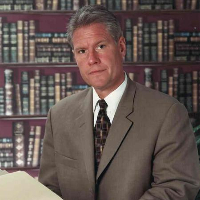Wheaton Misdemeanor Lawyer, Illinois
Sponsored Law Firm
-
 x
x

Click For More Info:
-
Law Offices of Darryl A. Goldberg
33 N Dearborn St Suite 1830 Chicago, IL 60602» view mapCriminal Defense Law Because Experience Matters
When a trial is in your future, make sure Chicago criminal defense attorney Darryl Goldberg is at your side. Defending your rights is the most important thing right now.
800-901-8970
Philip R. Nathe
Criminal, DUI-DWI, Juvenile Law, Felony, Misdemeanor
DuPage County Criminal Defense Attorney
After starting his career in the criminal courts of DuPage County as a clerk more than 30 years ago, Philip Nathe went on to become an accomplished at... (more)
Timothy P. Martin
Criminal, Felony, Misdemeanor, Traffic, DUI-DWI
Status: In Good Standing Licensed: 31 Years
FREE CONSULTATION
CONTACTIngrid Nierman
Landlord-Tenant, Real Estate, Divorce & Family Law, Misdemeanor
Status: In Good Standing Licensed: 24 Years
Michael P. O'Donnell
Criminal, DUI-DWI, Traffic, Felony, Misdemeanor
Status: In Good Standing Licensed: 21 Years
FREE CONSULTATION
CONTACTThomas Mullen
Estate, Misdemeanor, Real Estate, Landlord-Tenant, Traffic
Status: In Good Standing Licensed: 46 Years
Clarissa Myers
Criminal, DUI-DWI, Divorce & Family Law, Misdemeanor, White Collar Crime
Status: In Good Standing Licensed: 18 Years
FREE CONSULTATION
CONTACT Darryl Goldberg Chicago, IL
Darryl Goldberg Chicago, IL Practice AreasExpertise
Practice AreasExpertise

